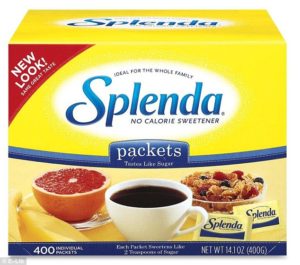 While today’s pharmaceuticals are often touted as game-changers and the product of a medically advanced society, there most definitely is a dark side to having our country flooded with prescription medications. And American youth are being particularly abused by Big Pharma and the traditional medical community.
While today’s pharmaceuticals are often touted as game-changers and the product of a medically advanced society, there most definitely is a dark side to having our country flooded with prescription medications. And American youth are being particularly abused by Big Pharma and the traditional medical community.
The more studies are conducted on mood-and-mind-altering medications for conditions like ADHD—perhaps one of the most over-diagnosed ‘illnesses’ among early school-aged children—the more we find they are doing lasting damage. Continue reading

 President Obama declared during his (2016) State of the Union Address that he’s putting Vice President Biden in charge of carrying out a multi-billion dollar “moonshot”, to cure cancer that Biden called for in wake of his son’s death. Unfortunately for Biden, and the public in general, Big Pharma has too much to lose by curing cancer, and too much to gain by keeping it in check.
President Obama declared during his (2016) State of the Union Address that he’s putting Vice President Biden in charge of carrying out a multi-billion dollar “moonshot”, to cure cancer that Biden called for in wake of his son’s death. Unfortunately for Biden, and the public in general, Big Pharma has too much to lose by curing cancer, and too much to gain by keeping it in check. 

 The National Institute on Drug Abuse is a U.S. federal research institute focused on “[advancing] science on the causes and consequences of drug use and addiction … to apply that knowledge to improve individual and public health.” Though it admits “the majority of people who use marijuana do not go on to use other, ‘harder’ substances,” it still describes marijuana as a gateway drug.
The National Institute on Drug Abuse is a U.S. federal research institute focused on “[advancing] science on the causes and consequences of drug use and addiction … to apply that knowledge to improve individual and public health.” Though it admits “the majority of people who use marijuana do not go on to use other, ‘harder’ substances,” it still describes marijuana as a gateway drug.
 Every time you enjoy a cool, clear glass of tap water, you could be drinking a cocktail of other people’s second-hand medications.
Every time you enjoy a cool, clear glass of tap water, you could be drinking a cocktail of other people’s second-hand medications. When the average person makes the decision to add a nutritional supplement to their diet, a multivitamin is likely to be the first choice. That’s because to most people it feels like “taking out insurance” on their health.
When the average person makes the decision to add a nutritional supplement to their diet, a multivitamin is likely to be the first choice. That’s because to most people it feels like “taking out insurance” on their health. It is now estimated that 1 in 8 Americans are on serotonin reuptake inhibitors (SSRI) antidepressants and a shocking 1 in 4 among women in their 40s and 50s. Yet the U.S. suicide rate of 38,000 a year has never been higher.
It is now estimated that 1 in 8 Americans are on serotonin reuptake inhibitors (SSRI) antidepressants and a shocking 1 in 4 among women in their 40s and 50s. Yet the U.S. suicide rate of 38,000 a year has never been higher. Many aspects of the GOP’s newly proposed A Better Way healthcare plan would improve the health system. But “A Better Way” seems to mean “Much of the Same” when dealing with Food and Drug Administration regulation.
Many aspects of the GOP’s newly proposed A Better Way healthcare plan would improve the health system. But “A Better Way” seems to mean “Much of the Same” when dealing with Food and Drug Administration regulation.  Many might say that a doctor saves lives and helps increase the average life span, but this is not true. Sure, they save a life here and there, but do they really relieve suffering? Patients extrapolate what doctors say, but they don’t realize that, while doctors do know about the diseases in depth, they know very little about the drugs they prescribe.
Many might say that a doctor saves lives and helps increase the average life span, but this is not true. Sure, they save a life here and there, but do they really relieve suffering? Patients extrapolate what doctors say, but they don’t realize that, while doctors do know about the diseases in depth, they know very little about the drugs they prescribe.  Many children with hyperactivity disorders are prescribed medication that is intended to help them. But a recent comprehensive study (the first of its kind) showed that certain drugs may be doing more harm than good. For kids with ADHD and other behavioral issues, a few different types of drugs are often prescribed including ADHD medications, anti-depressants and in extreme cases anti-psychotics. It is this last group on which the study, published by neuroscientists at the University of Wollongong, focused:
Many children with hyperactivity disorders are prescribed medication that is intended to help them. But a recent comprehensive study (the first of its kind) showed that certain drugs may be doing more harm than good. For kids with ADHD and other behavioral issues, a few different types of drugs are often prescribed including ADHD medications, anti-depressants and in extreme cases anti-psychotics. It is this last group on which the study, published by neuroscientists at the University of Wollongong, focused:  Skyrocking rates of antibiotic prescriptions now suggest that as many as four out of five Americans may be getting antibiotics annually, according to a new study by the Centers for Disease Control and Prevention.
Skyrocking rates of antibiotic prescriptions now suggest that as many as four out of five Americans may be getting antibiotics annually, according to a new study by the Centers for Disease Control and Prevention.